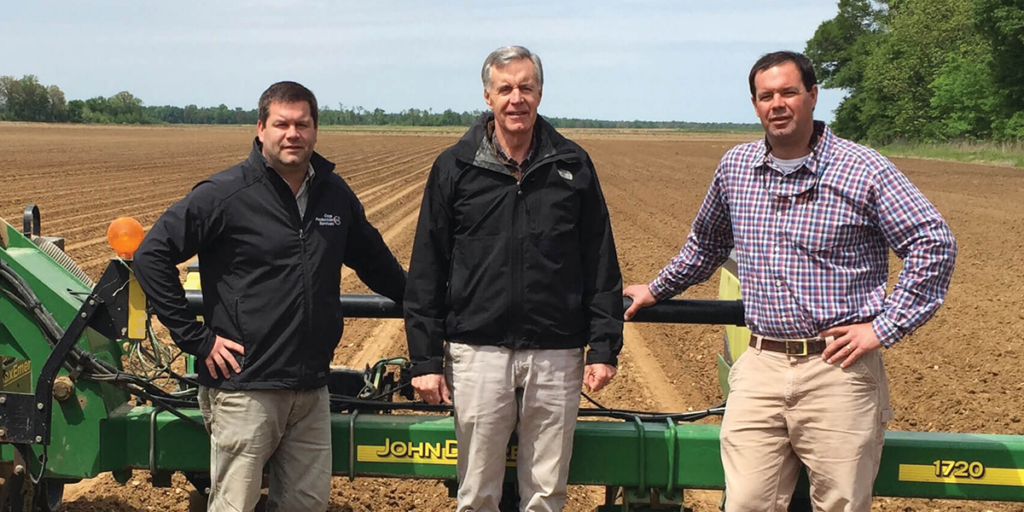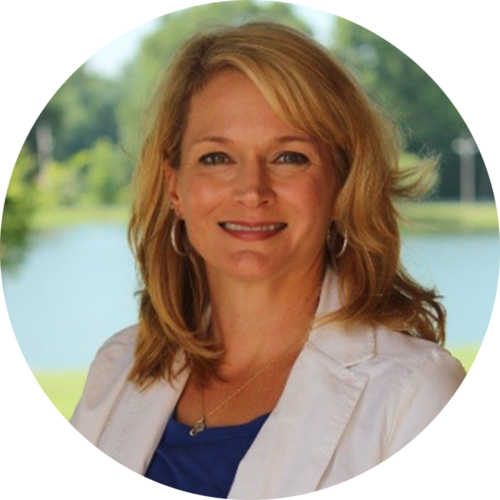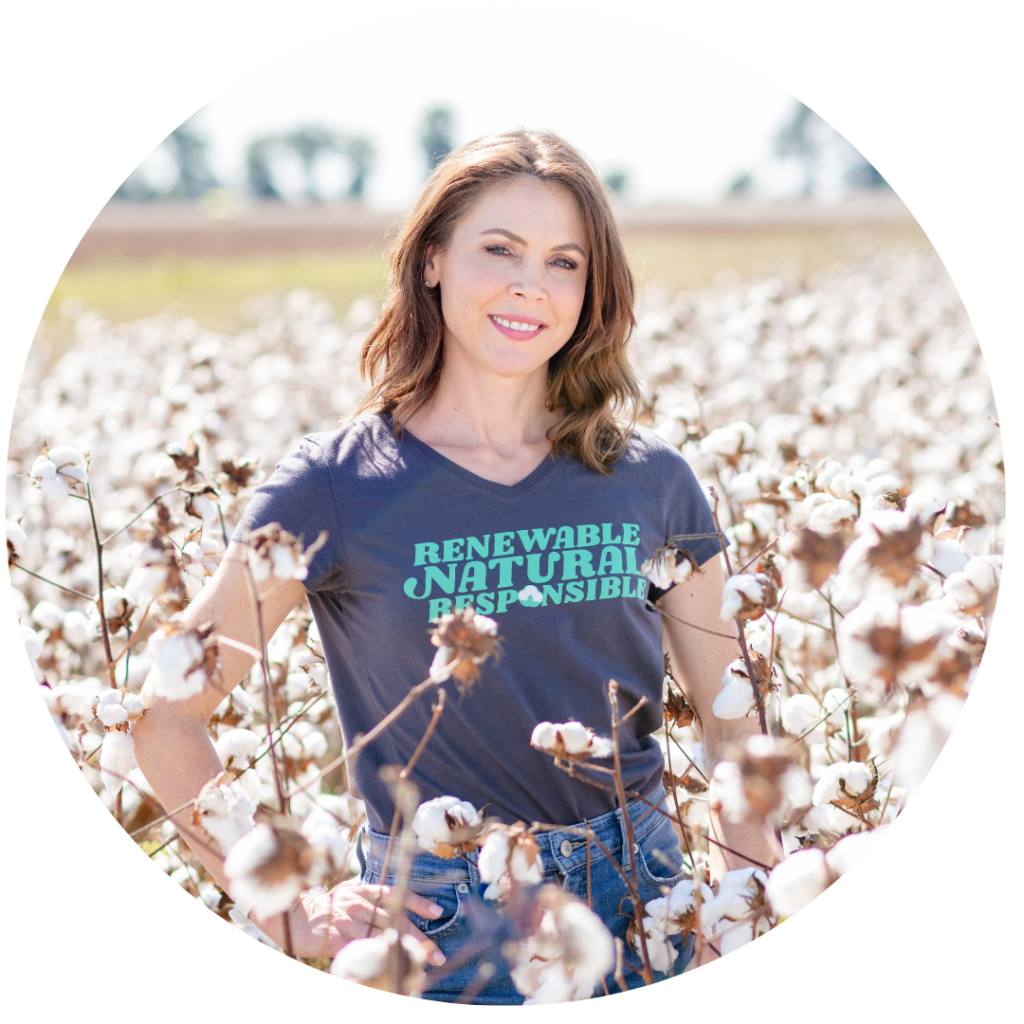2025 Farm Tour
COTTON INCORPORATED FARM TOUR

FIELD GUIDE
Meet the Experts
Resources on Cotton Sustainability
U.S. COTTON PRODUCERS
The Felton Family
The Felton family has been living and farming on the same land since 1882. It all began with John J. Felton in 1882 and continues today with Trent Felton and his sons, Trent Jr. and Jason Felton—the sixth generation to be custodians of this land. Each generation has practiced stewardship and has acquired additional land that benefited the next generation. Cotton has been and will continue to play a huge role in the success of Felton farms.
Pictured from left: Jason Felton, Trent Felton, Trent Felton Jr.

The Feltons have experienced steady growth while adopting new technologies that provide economic benefit. The following are a part of the Feltons’ evolving farm management practices for various crops. These practices have significantly contributed to the profitability of the farm as they reduce the Feltons’ environmental footprint and enable them to be more responsible producers by increasing yields with fewer inputs.
- Crop rotation—among cotton, corn, grain sorghum, peanuts, and soybeans—increases yields and helps to eliminate hard-to-control weed species and soil-borne pathogens and pests.
- Precision-leveled fields provide drainage and the ability to furrow irrigate.
- Prevention of soil and nutrient loss by maintaining abundant water drainage outlets.
- Implemented Pipe Planner (advance Phaucet Program) to all fields and the use of surge valves to reduce/eliminate the runoff of irrigation water.
- Placement of liquid phosphate in a band at planting. This has eliminated the use of granular phosphate.
- Soil sampled by soil management zones results in fertilizer and lime being applied at different rates only in deficient zones by a spreader utilizing variable rate technology.
- Maximize soil health: by applying biologicals and enzymes to stimulate bio-activity, which makes existing nutrients available to crops; with cover crops during winter to feed biologicals and control erosion; practice minimum tillage to sustain biological life and organic matter; broadcast gypsum in the fields after crop emergence to enhance water infiltration and eliminate aluminum toxicity in the soil root zone.
- Use GPS and spray controllers to prevent overlap of pesticides or chemicals and to maintain consistent flow rates.
- Converted the majority of diesel wells to electric to reduce irrigation pumping costs and to reduce the carbon footprint.
Larry McClendon
Larry McClendon grew his 41st cotton crop in 2014. A third generation grower, McClendon also grows corn, soybeans, milo, wheat, and rice.
Sustainability is important on the McClendon farm where the goal is to leave the land in better condition than when he received it.
McClendon includes soil, water, trees, wildlife and all the surrounding land under that definition.
To be more responsible, over the years, McClendon has incorporated several technologies related to water, fertility, and soil health into his cotton farming operations.

- Phaucet furrow irrigation is a computer-driven program to maximize water efficiency across the farm with the least amount of evaporation or run-off. Drop nozzles are also installed on all pivots which release water closer to the soil surface to prevent evaporation. In effect, about 95% of the water pumped hits the soil surface and absorbs into the ground, compared to about 70% efficiency with sprinkler methods.
- McClendon has been using precision sampling for over 15 years to tailor nutrient applications and only apply fertilizers when and where absolutely necessary. Veris® sensors allow McClendon to map the fields and identify each soil type by location. In addition, precision soil sampling using GPS location is completed every two or three years to manage field variability and precisely manage nutrient inputs. The Veris® mapping combined with precision soil sampling enables McClendon to make adjustments in fertility that traditional soil testing alone may not show. The use of these technologies has enabled McClendon to apply variable rate fertilizer and significantly reduce fertilizer inputs by about one-third.
- McClendon maintains and improves soil health and conservation by employing less tillage and using cereal rye as a cover crop. Cereal rye generates significant biomass which builds organic matter in the soil, suppresses weeds, as well as protecting the soil from erosion and improving water infiltration. The rye also creates a wind break in the field to protect young plants until they are strong enough to withstand wind.
Growing cotton, like other crops, is a business-driven by stewardship and economics. Using responsible technologies, McClendon is able to produce more cotton with fewer and fewer inputs. Not only does this significantly reduce cotton’s impact on the environment, but it’s good for business too.
Ramey Stiles
Taking cotton farming to a new level with new technology, this fourth-generation cotton grower explains how new equipment and technology have helped him increase irrigation efficiency, reduce costs and improve traceability.
Nathan Reed
In this video, third-generation cotton grower Nathan Reed shares how he overcomes challenges and continues his family’s legacy with the help of more efficient, sustainable practices.
EXTENSION AGENTS
Dr. Tina Gray Teague
Professor of Entomology and Plant Science
Arkansas State University
University of Arkansas
Dr. Teague is a proud native of northeast Arkansas and is from a family of farmers. She graduated high school in St. Louis and went on to study cotton entomology at the University of Arkansas and then Texas A&M. She has been on faculty at ASU since 1988. She has worked with both agronomic and vegetable crops, but most of her research career has been focused on cotton. She is committed to cotton sustainability and the practical implementation of integrated pest management.

Dr. Tyson Raper
Cotton & Small Grains Specialist
University of Tennessee
Dr. Tyson Raper works with the West Tennessee Ag Research and Education Center. He serves clientele statewide through a joint research and extension appointment in the Department of Plant Sciences. Dr. Raper oversees the UT Cotton Variety Test Program. He also implements research programs covering pertinent issues in cotton production, coordinates educational events, and develops training materials and other publications.
USDA CLASSING OFFICE STAFF

Byron Cole
Area Director, Memphis Classing Office
Byron Cole serves as the area director for the Memphis Classing Office—the largest classing office in the program. Cole has extensive knowledge of manual grading and HVI classification of cotton. He is committed to providing excellent service to the U.S. cotton industry and protecting the USDA’s unbiased role in cotton classification.

Gretchen Deatherage
Deputy Director, Cotton & Tobacco Program—Standardization & Engineering Division
Gretchen Deatherage has been with Standardization & Engineering division for the Cotton & Tobacco (C&T) program for almost 30 years. She has served as a classer, a classing supervisor, and as a shift supervisor in the Grading Division. Deatherage oversees the division’s day-to-day standards operations, administration functions, order processing operations, and customer relations.
COTTON INCORPORATED

Dr. Gaylon Morgan
Director, Agricultural & Environmental Research
Dr. Gaylon Morgan oversees agricultural and environmental research for weed management, agronomy, and soil health. Dr. Gaylon came to Cotton Incorporated with 18 years of experience at the University of Tennessee and Texas A&M University.

Jesse Daystar
Chief Sustainability Officer
Dr. Jesse Daystar is the Chief Sustainability Officer and Vice President of Sustainability at Cotton Incorporated and an adjunct professor at the Duke Nicholas School of the Environment. Dr. Daystar leads the cotton industry towards a more regenerative and sustainable future through supporting research and outreach programs aimed at implementing best science and practices in the soil and throughout the supply chain.

Sally Taylor
Director, Entomology
Sally Taylor, Ph.D. is research director for entomology at Cotton Inc. Previously, she was an associate professor with Virginia Tech. She is from eastern North Carolina

Kaitlyn Bissonnette
Director, Agricultural Research
Dr. Kaitlyn Bissonnette is a third-generation plant pathologist with roots in Extension education, applied field research, and management of diseases and nematodes in multiple field crops. Since joining Cotton Incorporated in April of 2022, she has fully embraced the integration of cross-disciplinary teams to solve current and future problems in plant pathology and nematology as the Director of Agricultural & Environmental Research for Plant Pathology and Nematology. Notably, she emphasizes the development of working groups to better understand the impacts of emerging and re-emerging disease threats on U.S. cotton production.

Edward Barnes
Senior Director, Agricultural and Environmental Research Division
Dr. Barnes is Senior Director of the Agricultural and Environmental Research Division at Cotton Incorporated where for the last twenty-two years he has managed agricultural engineering related projects, including programs on: precision farming, irrigation management, conservation tillage, cotton harvest systems, and ginning. He also contributed to documenting cotton’s progress in reducing its environmental footprint while at the same time increasing productivity and has served on the Science Advisory Council of Field to Market, the Alliance for Sustainable Agriculture. Most recently he is leading efforts to increase the automation of cotton production systems. He is a Fellow of the American Society of Agricultural and Biological Engineers and is currently the Vice Chair of their Circular Bioeconomy Systems Institute. He has a PhD from Oklahoma State University in Biosystems Engineering and B.S. and M.S. from NC State University in Biological and Agricultural Engineering.
Global Supply Chain


Megan Peterson
Director, Global Supply Chain Marketing
Neil Demarse
Director, New Market Development
Account Managers



Jennifer Lukowiak
Director
Katie Crumpton
Executive Account Manager
Marcy Gang
Executive Account Manager


Marissa Simms
Executive Account Manager
Savannah Fender
Executive Account Manager
Marketing & Industry Programs


Katie Rees
Marketing Manager
Claire Mansfield
Program Coordinator